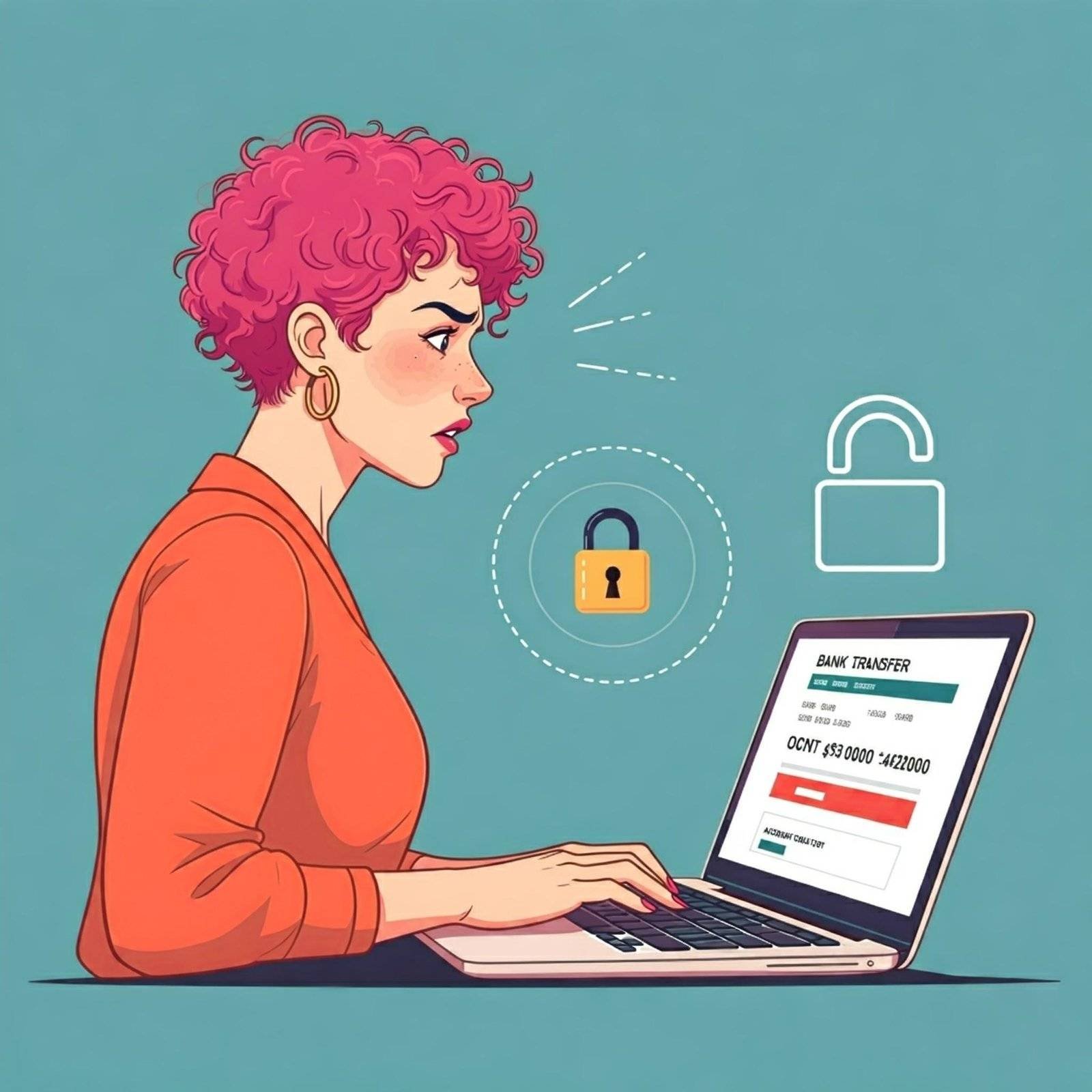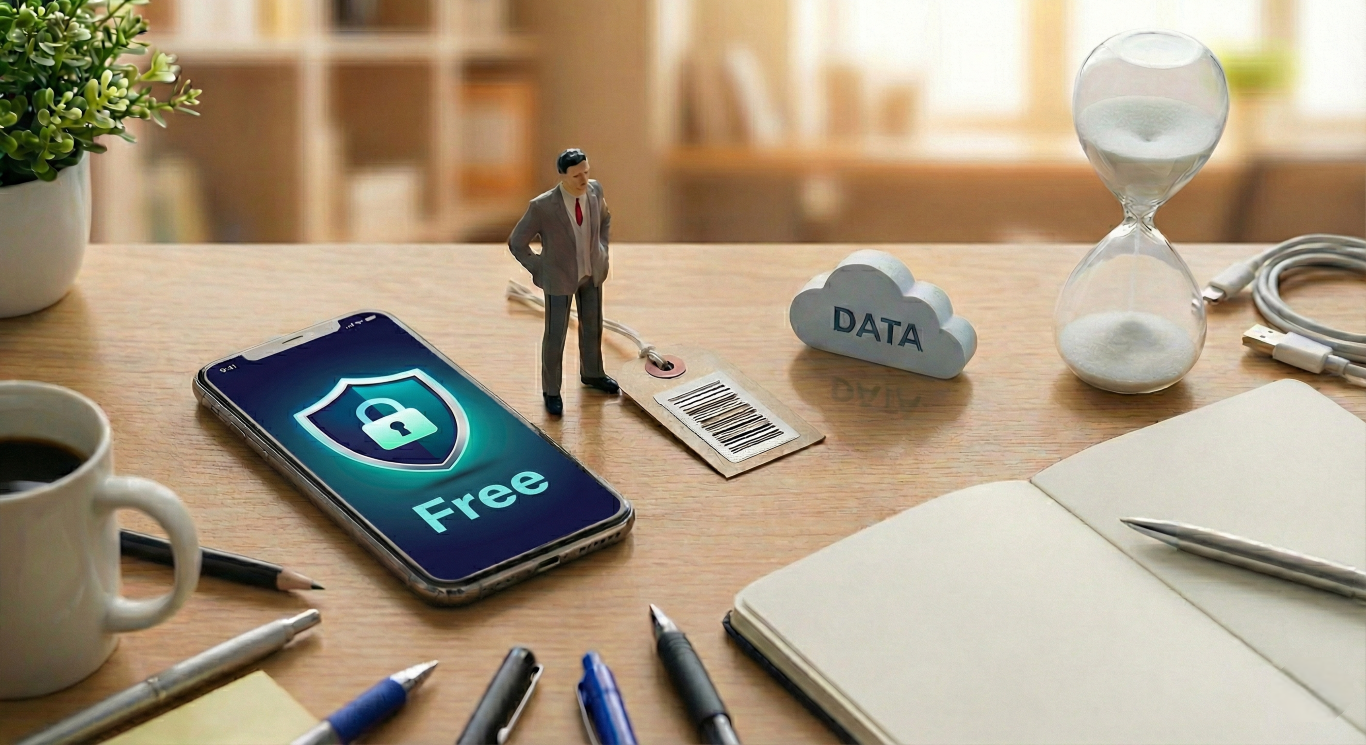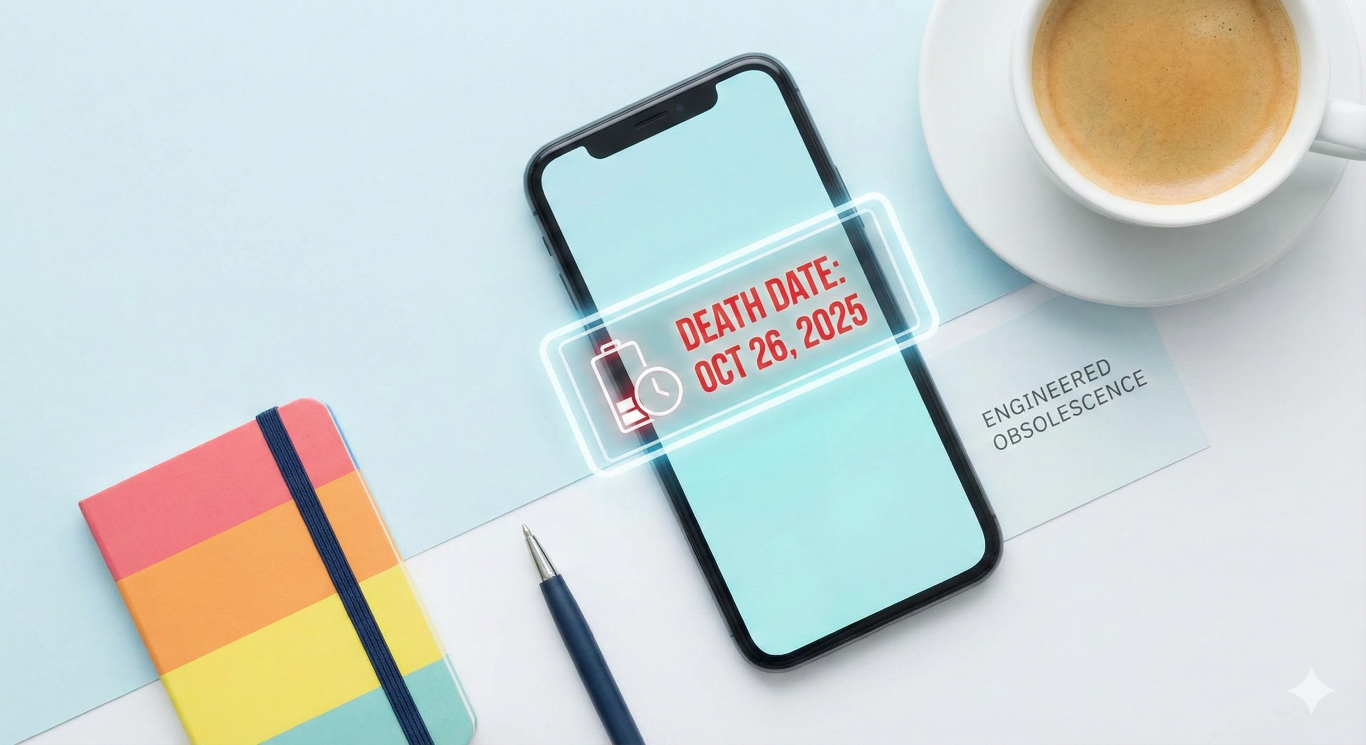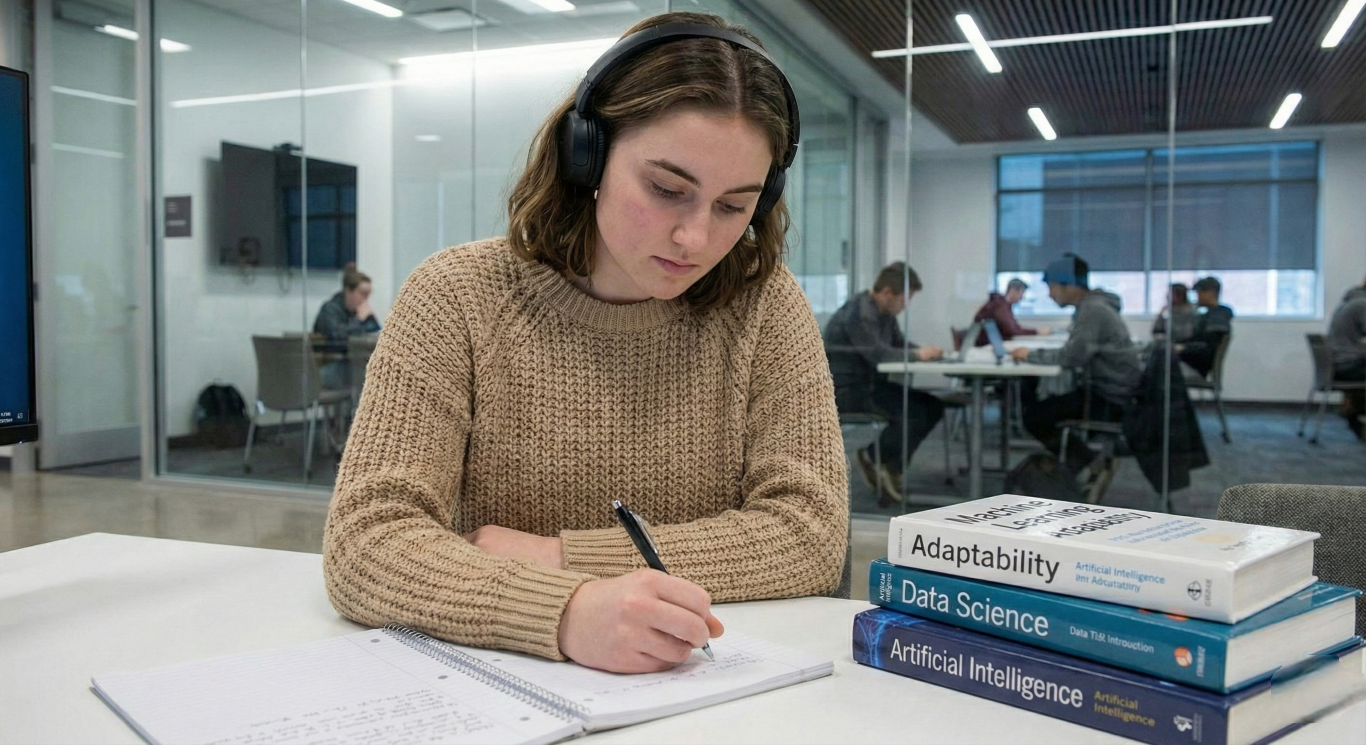In today’s world, almost everyone banks online. It’s just so convenient! Managing our finances, paying bills, and transferring money can all be done with a few taps or clicks. However, it’s important to remember that with this convenience comes risk. Cybercriminals are constantly looking for ways to steal our personal information and gain access to our accounts. That’s why understanding online banking security is crucial.
This article will guide you on how to protect your hard-earned money while enjoying the benefits of online banking. We’ll equip you with the knowledge you need to build a strong defense against those cybercriminals!
Why Online Banking Security Matters
The Growing Threat to Your Money
Unfortunately, cyberattacks on people who use online banking are becoming more and more clever. Hackers are using tricky tactics like phishing scams and malware attacks to try and steal your login details, empty your bank accounts, and get their hands on your financial information. These attacks can cause serious financial problems, leaving you with empty accounts, bad credit, and a long, hard road to recovery.
Protecting Your Financial Health
Internet banking safety isn’t just about protecting the money you have right now; it’s also about keeping your financial future healthy. Here’s how strong security measures can help:
- Stop Identity Theft: Strong passwords and things like two-factor authentication (more on that later!) make it really hard for someone to get into your accounts. This helps prevent identity theft, where someone pretends to be you to open accounts in your name.
- Peace of Mind: Knowing you’ve done everything you can to protect your bank account online gives you peace of mind. You can enjoy the ease of digital banking without constantly worrying.
Building a Strong Defense: Essential Security Measures

Strong Passwords and Two-Factor Authentication
Creating Unbreakable Passwords
Your first line of defense is a strong, unique password for each of your accounts. Think of it as the lock on your front door!
- What Makes a Strong Password? A strong password should be at least 12 characters long and include a mix of uppercase and lowercase letters, numbers, and symbols. This makes it super hard for hackers to guess.
- Avoid Common Passwords: Don’t use easy-to-guess information like birthdays, names, pet names, or common words. Hackers have tools that try these common passwords first.
- Unique Passwords for Every Account: Using the same password for multiple accounts is risky. If one account is compromised, all your accounts with that password are in danger. Unique passwords for each account add an extra layer of protection.
Two-Factor Authentication (2FA): Your Backup
Multifactor authentication, or 2FA, adds an extra layer of online banking protection. It requires a second form of verification, like a code sent to your mobile device or a fingerprint scan, in addition to your password. This means even if a hacker gets your password, they still can’t get into your account without that second factor. Many banks offer 2FA, and it’s super important to turn it on for all your accounts.
Protecting Your Devices and Network
Keeping Your Software Updated
Think of software updates like giving your computer a vitamin boost! They often include important security patches that fix weaknesses. Not updating your operating system, web browser, or security software leaves your devices open to attacks. Most software offers automatic updates, so turn those on to always have the latest protection.
Firewall: Your Digital Wall
A firewall is like a wall between your device and the internet, blocking anyone trying to get in without permission. Most computers come with a built-in firewall, so make sure it’s turned on.
The Dangers of Public Wi-Fi
Public Wi-Fi is convenient, but it can be like leaving your front door wide open! These networks often lack strong security features, making your data vulnerable to hackers. It’s best to avoid online banking on public Wi-Fi. Instead, use your mobile app with your phone’s data or a virtual private network (VPN).
What is a VPN?
A VPN is like creating a secret tunnel for your internet activity. It encrypts your internet traffic, making it very hard for hackers to see what you’re doing, even on public Wi-Fi.
Practicing Safe Online Banking Habits
Double-Check Websites and Apps
Before you type in any personal information on a website or app, always double-check the address bar to make sure you’re on the real site. Look closely at the spelling of the URL, as scammers often use addresses that look almost the same to trick people. Look for “https” at the beginning of the web address and a padlock icon in the address bar – these show that the connection is secure and your information is encrypted.
Log Out Completely
When you’re done with your online banking, always log out of your account by clicking the “Log Out” button. Don’t just close the window, as this might not actually end your session.
Keep an Eye Out for Suspicious Activity
Regularly check your bank and credit card statements for any unauthorized transactions or anything that looks fishy. Many banks also offer account alerts via email or text message. Set up alerts for things like login attempts, transactions over a certain amount, or changes to your contact information.
Outsmarting the Scammers

Recognizing Phishing Attempts
Phishing scams are one of the most common ways cybercriminals try to steal your online banking information. They usually involve fake emails or text messages that try to trick you into giving away your username, password, or other private information.
Spotting Red Flags
Be careful of emails or text messages that:
- Come from people you don’t know or have strange email addresses.
- Use generic greetings like “Dear Customer” instead of your name.
- Ask you to update your account information, verify your identity, or claim a prize by clicking a link.
- Try to scare you or rush you into doing something quickly.
Verify Requests for Information
Remember, real banks will never ask for sensitive information like your password, PIN, or full account number via email, text message, or phone call. If you get a request like this, call your bank directly using the number on your statement or their official website to check if it’s real.
Staying Ahead of Other Scams
- Phone Scams: Be wary of calls from people claiming to be from your bank or the government. They might try to tell you there’s a problem with your account or that they need your information. Never give out sensitive information over the phone unless you made the call and you’re sure who you’re talking to.
- Social Engineering: This is where scammers try to manipulate you into breaking security rules or giving away confidential information. Be careful about sharing personal information online, over the phone, or in person. Always check the identity of people asking for this information, especially if it seems unusual.
Extra Layers of Protection
Tools and Habits for Proactive Security
- Dedicated Devices: If you can, use a separate computer or mobile device just for online banking. This can lower the risk of getting malware from visiting bad websites or opening infected attachments.
- Password Managers: A password manager is like a digital vault for all your passwords. It can create strong, unique passwords for each of your accounts so you don’t have to remember them all. Choose a password manager from a well-known company with strong security features like encryption and multifactor authentication.
- Stay Informed: Cybersecurity threats are always changing, so it’s important to stay updated on the latest scams and security practices. Subscribe to security newsletters, follow cybersecurity blogs, or visit your bank’s security center to stay in the know.
Take Control of Your Online Security
Banks spend a lot of money on security measures to protect your accounts, but you also have an important role to play. By following the tips in this article, you can make your online banking much safer and protect yourself from cybercrime. Remember, your online security is in your hands. By staying informed, practicing safe online habits, and using security tools, you can confidently use digital banking with peace of mind.
Frequently Asked Questions
What if I think there’s been fraudulent activity on my account?
Call your bank right away using the number on the back of your card or your bank statement. Don’t use the number in a suspicious email or text message.
How often should I change my password?
It’s a good idea to change your online banking password every three to six months. You should also change it right away if you think someone might know it.
Are online banks safe?
Yes, online banks can be just as safe as traditional banks, as long as they are FDIC-insured and have strong security measures. Look for banks that offer things like multifactor authentication, strong encryption, and fraud monitoring.
Is it safe to check my account on public Wi-Fi?
It’s best to avoid accessing online banking on public Wi-Fi. If you have to use it, use a VPN to encrypt your connection.
How can I avoid phishing scams?
Be careful of emails or text messages you didn’t ask for that are asking for personal or financial information. Never click on links in suspicious emails and always check with your bank directly if you’re not sure about something.




